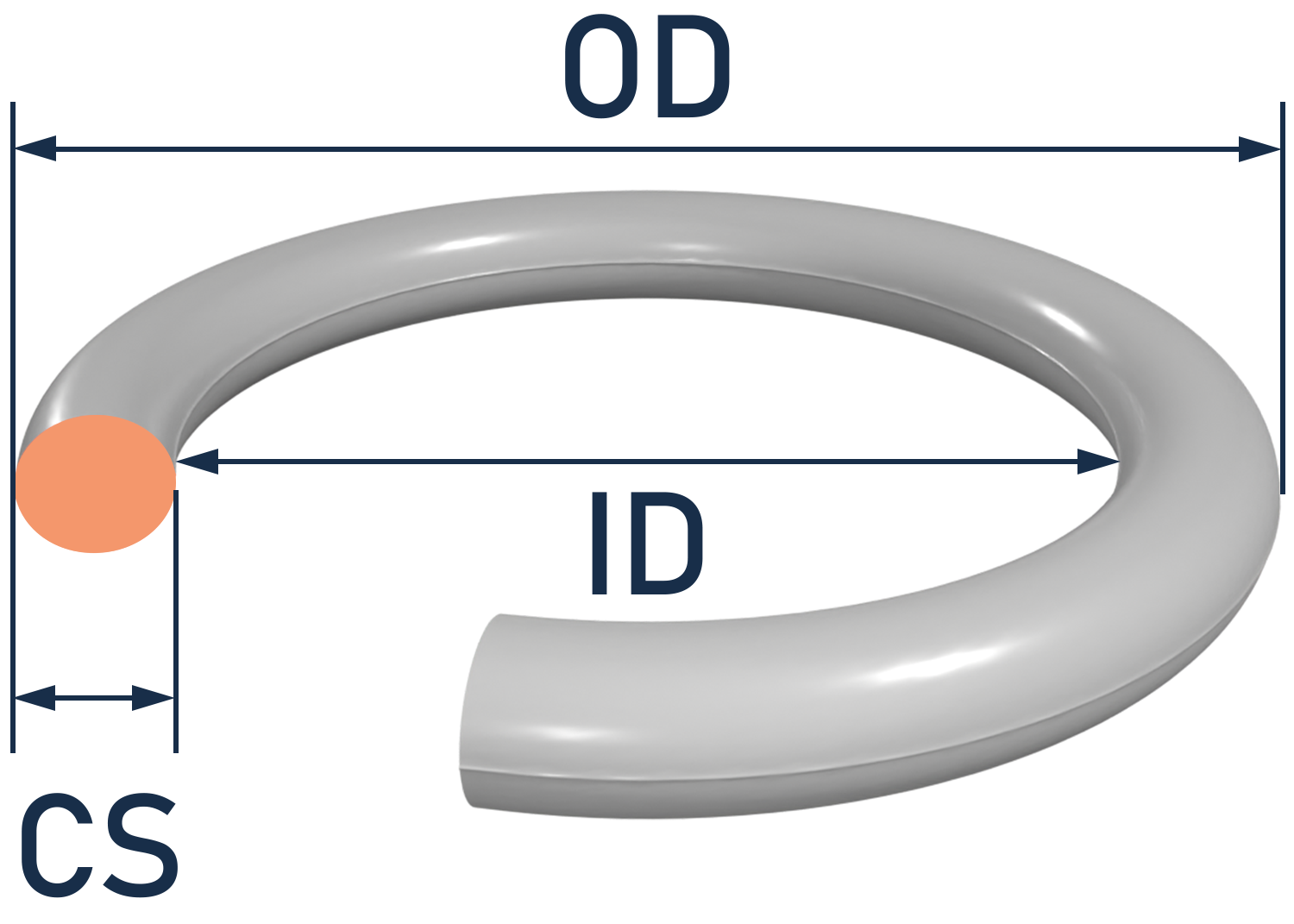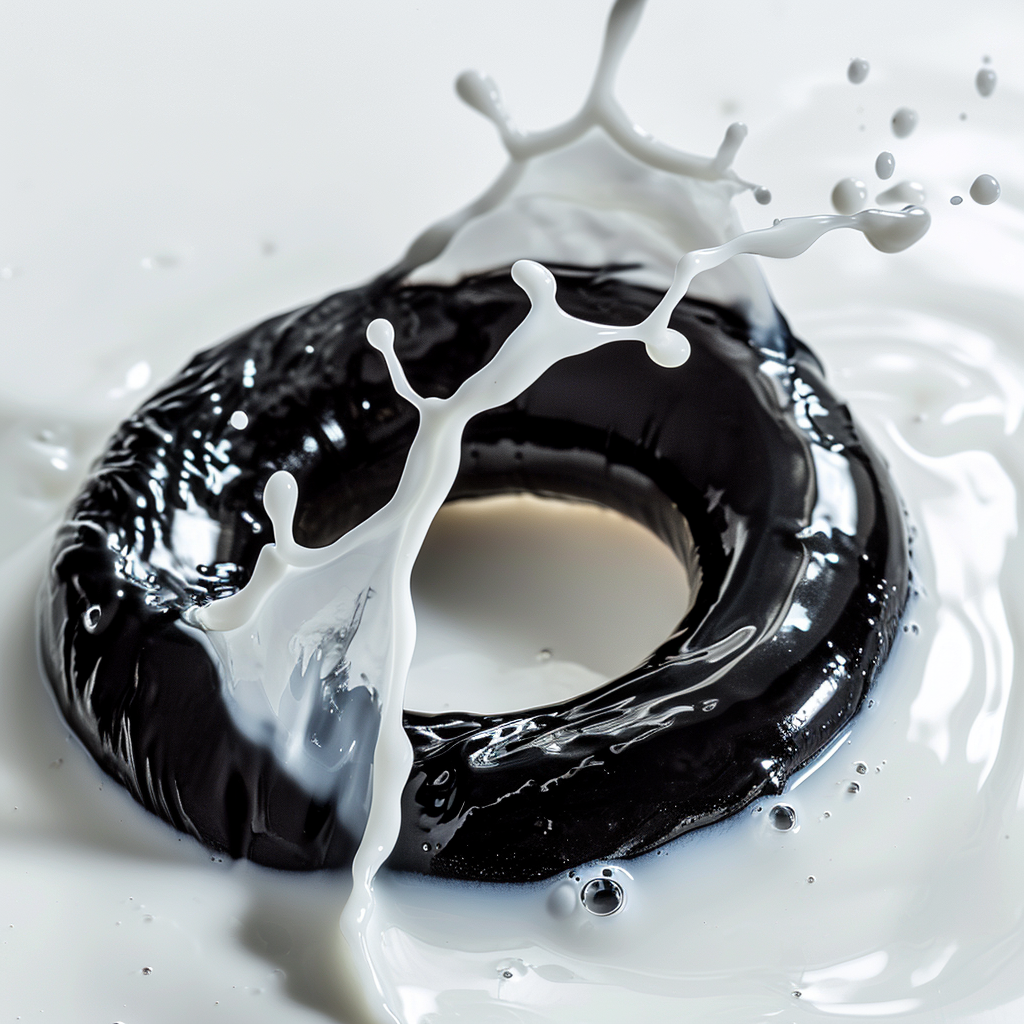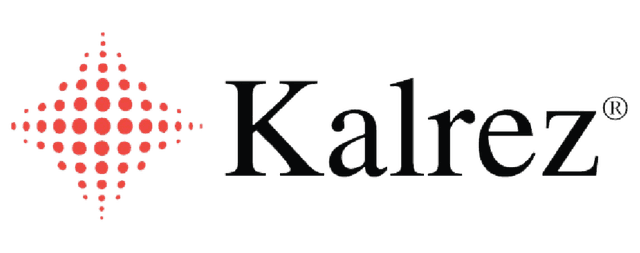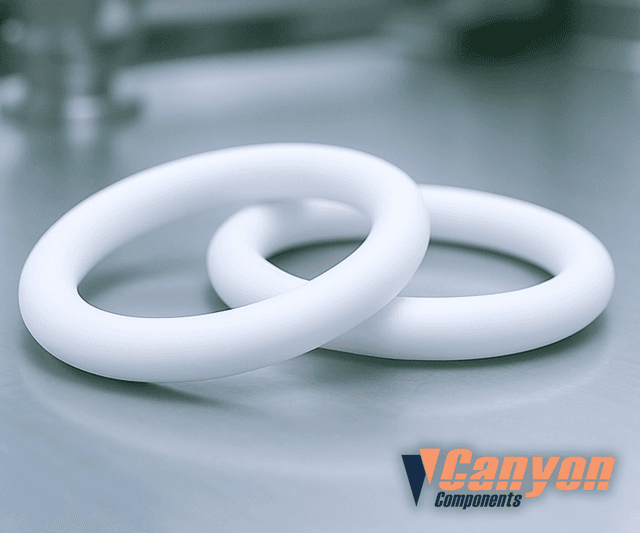
WRAS Materials: Drinking Water Safe
WRAS (Water Regulations Approval Scheme) materials are specifically designed to meet the rigorous standards required for components that come into contact with potable water. These materials ensure that products used in water systems do not contaminate or affect the water quality, making them essential for compliance with UK water regulations. This guide covers the features, common applications, and the pros and cons of WRAS-approved materials.
WRAS EPDM, Silicone, CanRez® FFKM and Kalrez® O-rings, gasket rapid manufacturing, & custom molded parts are available now!
Check with one of Canyon’s helpful product engineers for an expert material and manufacturing recommendation.

Features of WRAS Materials
WRAS-approved materials possess several key features that make them suitable for use in potable water systems:
- Non-Toxic and Safe for Water Contact: WRAS materials are tested to ensure they do not leach harmful chemicals, metals, or contaminants into drinking water, safeguarding water quality.
- Chemical and Biological Resistance: These materials are resistant to various chemicals, treatments, and biofilm growth, ensuring long-term safety in potable water systems.
- Durability and Reliability: WRAS materials are engineered for long-lasting performance, even under continuous exposure to water, pressure, and environmental stressors.
- Compliance with UK Water Regulations: These materials meet the strict requirements of the UK's Water Regulations Approval Scheme, ensuring products used in plumbing and water distribution are safe and compliant.
- Temperature Tolerance: WRAS materials can withstand a range of temperatures, making them suitable for both hot and cold water applications.
Common Applications of WRAS Materials
WRAS-approved materials are used across various water-related applications to ensure the safety and quality of potable water systems:
- Plumbing Systems: WRAS materials are used for pipes, fittings, and seals in domestic and commercial plumbing systems, ensuring the materials in contact with drinking water are safe and compliant.
- Water Storage Tanks: In potable water storage tanks, WRAS materials are used for lining, sealing, and gaskets to prevent contamination and ensure the water remains clean.
- Faucets and Valves: WRAS-approved rubber seals and gaskets are used in faucets, valves, and other components that control water flow, ensuring the system remains free from contaminants.
- Water Treatment Equipment: WRAS materials are commonly used in water filtration, softening, and treatment systems to ensure safe, clean water is provided to consumers.
- Irrigation Systems: In agricultural and garden irrigation systems that use potable water, WRAS-approved materials help maintain water purity and system efficiency.
Please consult a Canyon Components Engineer about your specific application and we will use our decades of experience to formulate a solution that fits your need.
WRAS Materials Available
This table shows many of our standard materials and links out to our O-ring store. Get in touch with us if you need a custom gasket, custom molded part, or non-standard geometry!
Filter by
Temperature Search (°C)

Get a Quote Now!

WRAS Elastomers
Drinking Water Materials
Explore WRAS materials, certified for use in drinking water and potable systems. Learn about their features, compliance with safety standards, and how they ensure clean, safe water in various applications.
Specialty Compliances
Canyon have materials available for O-rings, gaskets, & custom parts with compliances ranging from USP Class VI <87> & <88> for medical applications, to FDA CFR 21.177.2600 grades A through F for different food types, to the various drinking water specifications like WRAS, KTW, and NSF. Whether it's metal, rubber, or plastic, Canyon can meet your needs!
Custom Parts
Here at Canyon Components, we make sure to offer our customers any manufacturing technique they desire. Whether your WRAS O-rings, gaskets, & custom molded parts be rubber, plastic, or metal, rest assured that Canyon Components can make it!
CanRez™ FFKM Perfluoroelastomer
Extreme temperatures & chemicals require extreme solutions! WRAS CanRez™ FFKM materials offer extreme reliability where you need it most! Thousands of sizes in stock now!
Kalrez® FFKM Perfluoroelastomer
Canyon Components offers WRAS Kalrez® Perfluoroelastomer (FFKM) O-rings, gaskets, & custom molded parts at competitive prices and with great lead-times.
WRAS Parker® O-rings, Parofluor parts, parker FKM Viton
Canyon Components offers WRAS Parker Hannifin® O-rings, Gaskets, WRAS Perfluoroelastomer (FFKM) parts, & custom molded parts at competitive prices and with great lead-times.
FKM (Viton®, Fluorocarbon)
WRAS FKM compounds, O-rings, gaskets, & custom molded parts exhibit excellent mechanical attributes as well as excellent resistance to high temperatures, mineral oil, ozone, fuels, hydraulic fluids, and many other solvents and chemicals.
Fluorosilicone (FVMQ)
The mechanical and physical properties of WRAS Fluorosilicone O-rings, gaskets, & custom molded parts are very similar to silicone. Fluorosilicone O-rings, gaskets, & custom molded parts offer improved flexibility and strength, better resistance to fuels and mineral oil, but reduced hot air resistance.
Silicone (VMQ, PVMQ)
WRAS Silicone seals, O-rings, gaskets, & custom molded parts are excellent for extreme temperatures in static applications. Canyon Components carries a range of silicone materials, and we are happy to custom tailor a seal to meet your application requirements!
EPDM (Ethylene Propylene)
WRAS EPDM materials, O-rings, gaskets, & custom molded parts can operate over a wide temperature range, and are compatible with glycol fluids that cause problems for most typical elastomeric seals.
NBR (Nitrile, Buna-N)
WRAS Nitrile O-rings, gaskets, & custom molded parts are very oil-resistant, have strong mechanical properties, are resistant to wear, and are relatively inexpensive. These properties make Nitrile the most commonly used general purpose O-ring, gasket, & custom molded part material.
PTFE Encapsulated
WRAS FEP and PFA encapsulated O-rings consist of an elastomeric core and a seamlessly closed casing of modified PTFE. The elastomer core of encapsulated O-rings is typically made of FKM (Viton) or VMQ (silicone) and guarantees a uniform pre-tensioning at the sealing point.
PTFE (Teflon)
The harshest environments require specialized solutions. Often times, a Canyon Components WRAS PTFE O-rings are used in harsh chemical environments. Polytetrafluoroethylene, commonly known as PTFE or Teflon®, is a high-performance fluoropolymer known for its exceptional chemical resistance, low friction, and non-stick properties.
WRAS Plastics

WRAS Materials Pros & Cons
WRAS-approved materials are essential for ensuring the safety, reliability, and compliance of products used in potable water systems. With features such as non-toxicity, durability, and chemical resistance, these materials are suitable for a wide range of applications in plumbing, water treatment, and irrigation systems. While the cost and certification process may present challenges, the benefits of using WRAS materials—especially in terms of regulatory compliance and public safety—make them a crucial choice for water-related applications in the UK. Understanding the features, applications, and potential drawbacks of WRAS materials will help you make informed decisions to ensure the safety and efficiency of your water systems.
Canyon Components strives to meet all customer service requests. Feel free to contact Canyon Components engineering and let our knowledgeable staff help you design the perfect part for your needs.
Pros of WRAS Materials
WRAS-approved materials offer several advantages that make them indispensable in potable water applications:
- Regulatory Compliance: WRAS materials meet strict UK water regulations, ensuring the safety and reliability of products used in drinking water systems.
- Safety for Drinking Water: These materials are non-toxic and undergo rigorous testing to ensure they do not leach harmful substances, making them safe for use in potable water.
- Long-Lasting Performance: WRAS materials are highly durable and resistant to environmental factors such as pressure, temperature, and chemical treatments, providing long-lasting performance.
- Wide Range of Applications: WRAS-approved materials can be used in a variety of water-related applications, from plumbing systems to water treatment equipment.
- Public Confidence: Products with WRAS-approved materials reassure consumers and end-users that the water systems meet high safety standards for potable water.
Cons of WRAS Materials
While WRAS materials offer many benefits, there are also some potential drawbacks to consider:
- Higher Cost: WRAS-approved materials may be more expensive than non-certified alternatives due to the testing, certification, and manufacturing processes involved.
- Limited Availability: The range of materials that can meet WRAS standards may be more limited compared to non-certified options, potentially limiting material choices for certain applications.
- Complex Certification Process: Products using WRAS-approved materials must undergo extensive testing and certification, which can add time and cost to product development.
- UK-Specific Regulation: WRAS is a UK-specific approval scheme, so these materials may not be necessary or recognized in regions outside of the UK, potentially limiting their global application.
Relevant Compliances
KTW Materials: Certified Solutions for Drinking Water and Potable Systems
Discover KTW materials, approved for use in drinking water systems. Learn about their features, compliance with German water standards, and how they ensure safety and reliability in potable water applications.
NSF 61 Materials: Safe Solutions for Drinking Water and Potable Systems
Explore NSF 61 materials, certified for use in drinking water and potable systems. Learn about their features, compliance with safety standards, and how they ensure clean, safe water in various applications.
Materials for Drinking Water
Discover materials for drinking water: safe, certified options designed to meet rigorous health standards for water distribution and storage.
Back to Compliance Hub

Get A Quote Now!















